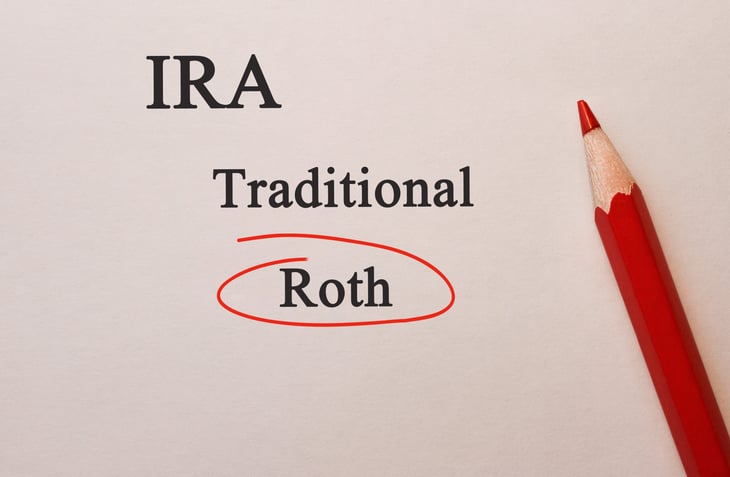
Editor's Note: This story originally appeared on NewRetirement.
Stock market corrections, crashes, and bear markets are a reality of long-term investing.
They have happened before and will happen again.
Here are tips for weathering these investment storms.
1. Remain Calm

Watching the stock market lose value is not fun. However, don’t panic.
Historically, those who remain calm and stay the course with their investments are rewarded with a big bounce in due course.
Unfortunately, many retail investors (regular people who invest their money themselves) get nervous as prices trend downward. It is not uncommon to hear stories of people getting nervous and selling at the market bottom and then not re-investing, missing the market recovery. This is the single biggest reason that retail investors typically lag overall market performance.
We cannot predict what will happen, but acting calmly is bound to serve you well. Do not panic is the first rule of protecting your long-term financial health in a downward trending market.
2. Understand That Bear Markets, Crashes and Corrections Are Normal

According to Investopedia, between 1980 and 2018, the U.S. markets experienced 36 corrections:
- Ten of these corrections resulted in bear markets, indicating an economic downturn.
- The other 26 remained or transitioned back into bull markets reflecting economic growth and stability.
The average market correction is actually pretty short-lived lasting anywhere between three and four months.
According to data, of the past 20 corrections, only two lasted longer than 100 trading sessions. The longest recent stretch in correction territory was a period of 229 trading days that ended in 1978.
3. Repeat After Me: If You Don’t Sell, You Don’t Lose Actual Money

If you owned $100,000 of a stock index during a 20% correction, you might say that you lost $20,000. This might feel awful.
However, it is important to remember that if you don’t sell, you only actually lose that money on paper. Don’t focus on the virtual losses, consider what you stand to gain if you can stay invested and the value rebounds.
4. Invest

The number one rule of stock market investing? Buy low, sell high.
Stock market corrections are a tremendous opportunity to invest money, if you have any available.
5. A Correction Can Be a Good Time for a Roth Conversion

A Roth conversion is when you transfer money from a traditional IRA or 401(k) to a Roth IRA. When you do this, you pay income taxes on the amount you convert. However, once those assets are in the Roth, they grow tax-free, and you do not pay taxes on the withdrawals you make in retirement.
So, doing the conversion when the value of your portfolio is down and you think there is potential for long-term growth can be a great idea.
6. Remember That Even Cash Can Be a Risky ‘Investment’ (Especially Now)

In an inflationary period, the value of cash goes down. A dollar buys less and less with every passing year.
On the other hand, stocks and stock markets generally trend upward.
Cash — whether it is buried in your mattress or sitting in your checking account — is usually a terrible way to hold money, especially money that you are saving for long-term goals like retirement.
Imagine that you have $50,000 that you do not need to spend for 25 years:
- If you keep that money in cash, you will still have $50,000 in 2047 (25 years from now).
- That $50,000 will likely buy much less than it can now.
- If you put the money in a checking account, you might earn 3% on your money. But, with inflation at around 8%, your real returns would be negative 5%.
- However, if you invested your money and earned a conservative 6% rate of return and assuming inflation goes lower, you would have $223,000 — more than four times the amount you started with!
7. Understand Ways to Bridge Your Finances if You Experience a Loss

If you experience losses in retirement investments, you are not necessarily in the poor house, especially if you consider alternate sources of wealth before selling stocks that are down.
Here are some of the best and worst sources of emergency money.
8. Again, Remain Calm: Avoid Panic Selling

Panic selling is when you get so worried that a market correction is going to continue that you quickly sell. This can be disastrous. Not only are you selling at a low point, but you are likely to miss out on big gains when the market bounces back.
You might be surprised to learn that the stock market’s best trading days typically occur within two weeks of its worst days.
See tip No. 2 for financial decision-making.
9. Understand That Long-Term Investors Have Always Prospered

Yes. The stock markets go down. However, looking at the historic trajectory of the markets, things have only gone up over the long haul.
The reason that retirees get nervous is that not everyone can have a long-term perspective. In retirement, you might need to withdraw money for living expenses this month, this year or within the next five years.
Money that you will need in a relatively short time period should probably never be invested in the stock market. However, money that you will use in the future can be invested in stocks — just preferably not individual stocks, which do have significant risks. Index funds can sometimes be a good way for retirees to enjoy growth for their longer-term assets.
10. Be Prepared

You’ve heard it before, proper preparation prevents poor performance. The adage is particularly true when it comes to your financial health. Here are tips for preparing for a down market.
If you are considering stock investments, you need to think hard about how much money you need and when and make sure those funds will be available to you — no matter what the markets are doing at that time. The NewRetirement Planner lets you see this in great detail.
The bucket approach is advocated by many retirement experts.
- In one bucket you maintain liquid assets — cash or other low-risk investments in an amount to fund one to three years’ worth of your retirement withdrawal needs. The reason for this bucket is to avoid the need to liquidate equities during periods when the stock market is down, realizing steep losses.
- The second bucket might contain up to five years’ worth of living expenses and be invested in a combination of income-producing investments and some that offer moderate growth opportunities.
- The third and most aggressive bucket will be predominately invested in stocks and more aggressive fixed and alternative types of investments. This bucket is designed for growth and to help you avoid running out of money by being too conservative.
Prepare by Diversifying
Many people think that you should avoid the stock market with money intended for retirement. This is not usually the best strategy. Stocks can do a good job of helping your income and assets grow and stay ahead of inflation.
However, you don’t want to “keep all of your eggs in one basket.” You want to figure out a diversified portfolio of an array of financial vehicles.
Consider bonds, cash, real estate, derivatives, life insurance, annuities, precious metals and other types of investments.
You also want diversified holdings within each asset class. For example, for stocks you would not want only large oil and gas companies. Instead, you might want a mix of small and large, international and domestic companies in different fields.
Not sure about the right mix of investments for your needs? Consider working with a pre-screened and fee-only fiduciary financial adviser.
Consider Index Funds
If you want to be invested in the stock market, consider index funds to give you broad exposure to the markets and not individual stocks which are much riskier.
Believe in the Fundamentals of the Companies You Own
Warren Buffet is famous for saying: “What an investor needs is the ability to correctly evaluate selected businesses. Note that word “selected”: You don’t have to be an expert on every company, or even many. You only have to be able to evaluate companies within your circle of competence. The size of that circle is not very important; knowing its boundaries, however, is vital.”
It is a good idea to know something about the companies whose stock you own and to really believe in them. You will be less likely to panic and sell in a major downturn if you actually understand what the company does and know enough about the industry to project whether or not there will be a market for whatever the company makes in the future.





Add a Comment
Our Policy: We welcome relevant and respectful comments in order to foster healthy and informative discussions. All other comments may be removed. Comments with links are automatically held for moderation.